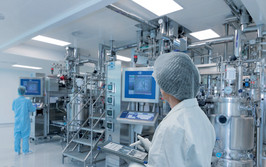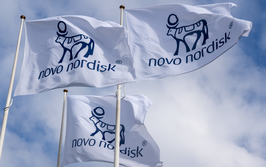A False Economy
There is a constant drive in the industry to reduce costs, but quality doesn’t come cheap, and inexpensive supplies can prove a poor bargain.
sponsored by Capsugel
Given the challenging economic environment, there is a clear need for cost-effective manufacturing. One area where pharmaceutical companies often try to reduce costs is in the procurement of materials, such as excipients – and I’ve seen many instances where cost has been the deciding factor in negotiating a deal. Cost effectiveness is, of course, an important factor, but there can be a danger in prioritizing cost alone – not all commodity items are the same and it’s important to also consider the quality of materials you are procuring, as well as the responsibility and global quality standards of the supplier they are coming from. How do they secure quality of their raw materials? How deep is their understanding and documentation of their manufacturing process? Are they using the best analytical tools? Are they up to date with regulatory and pharmaceutical changes and requirements?
In recent years, a number of suppliers both outside and inside the US have run afoul of the FDA, which causes problems for the customers of that supplier as well. The best price may seem like the best bargain, but price of a single ingredient becomes irrelevant when companies face the cascade of issues that ensue with a product recall or investigation. The real value of quality is that it allows companies to achieve their cost goals by improving yields, achieving higher speeds, eliminating in-process investigations, and reducing incoming controls while reducing the risk of costly regulatory issues.
It may surprise you to know that many companies do not trust their suppliers – I have heard of pharma companies keeping enormous quantities of stock material because they don’t trust their suppliers to deliver on time. So why are they using that supplier at all?
The relationship between a supplier and a pharma company should be a long term one and a good supplier will do more than simply supply you with products. If I ask for 100 million capsules, for example, there are two ways the supplier can react. They can put the capsules in a carton and ship them to me. Or a supplier with a more holistic view on the customer relation will provide the capsules as part of a collaborative effort, assuring that they are on-time, shipped and traced under the required conditions for their supplies.
A good supplier will have knowledge and expertise about their specific excipient, component or service, and considers shared responsibility for the customer success as well. For example, suppliers can help customers to improve manufacturing efficiencies by examining how the excipients or capsules supplied run on customer machines, and how yield can be improved. A yield of 90 percent means that 10 percent of a batch is being destroyed. If your supplier will collaborate with you to get, for example, a 97 percent yield or higher, profits will rise accordingly.
Another area where suppliers can (or must in my opinion) provide invaluable assistance is in regulatory matters. Regulators across the globe have different requirements, so you need to know what materials can be used in each region and what certificates and data are required. Is an excipient or capsule suitable for all markets? Are there specific regulations that you need to be aware of in the market you are considering? This is information that a good supplier can provide. In addition, drug manufacturers have to provide certification and proof of compliance with the existing regulations, such as audit reports of suppliers, TSE/BSE certificates, as well as data on traceability of the raw materials and analytics. If you are working with a supplier that can smooth this process, or deal with certain queries from regulators pro-actively on your behalf, it can be a huge benefit.
Finally, I believe it is important to find a supplier who is looking to the future. Manufacturing is neither static, nor is manufacturing sciences. Process Analytical Technologies (PAT), continuous processing, Quality by Design (QbD) and other initiatives taken over the past decade are silently and fundamentally changing pharmaceutical manufacturing; we must prepare for change. Responsible suppliers are already working on the next generation of their excipients to ensure higher performance criteria, functionality and six sigma levels of quality. Moreover, incorporating extra features and functionality, such as enteric properties into capsules to address drug delivery challenges, can also significantly reduce manufacturing complexity and hence manufacturing costs.
Given the industry’s focus on cost reductions, it is understandably tempting to focus on the cost of procurement. Each department will have their own budget constraints to consider. But many companies today are taking a smart approach to recognizing the real value of their quality materials and processes – and are creating a partnership with their suppliers. They know it can help achieve budget targets through improved performance, create peace of mind and have a significant positive impact on the business as a whole.
Head of Global Scientific Business Development at ACG



















